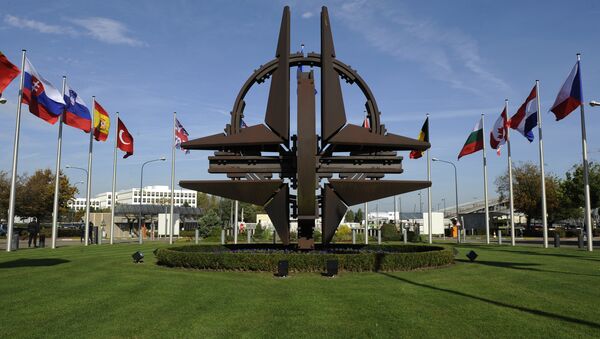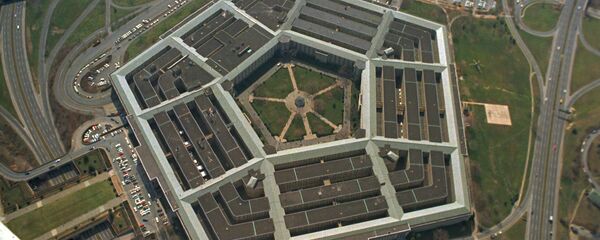The North Atlantic Treaty Organisation released an official statement in support of the US's unilateral withdrawal from the 1987 Intermediate-Range Nuclear Forces Treaty (INF) on Friday.
The document has been released following US Secretary of State Mike Pompeo's announcement that on Saturday the US will suspend its obligations under the INF Treaty and begin a six-month withdrawal process.
The statement says the bloc fully supports the US's decision to withdraw from the INF treaty, adding that the move was made "in response to the significant risks to Euro-Atlantic security posed by Russia's covert testing, production, and fielding of 9M729 ground-launched cruise missile systems."
"Allies strongly supported the finding of the United States that Russia is in material breach of its obligations under the INF Treaty and called upon Russia to urgently return to full and verifiable compliance," the document says.
The document underscores that member nations "engaged" Russia on its alleged violation, but "regret" that Russia continues to deny any wrongdoing.
"Allies regret that Russia, as part of its broader pattern of behaviour, continues to deny its INF Treaty violation, refuses to provide any credible response, and has taken no demonstrable steps toward returning to full and verifiable compliance," it says.
The document says Russia must destroy all 9M729 systems, or it will "bear sole responsibility for the end of the Treaty".
In the meantime, NATO allies will "continued to consult each other" in order to assess "the security implications of Russian intermediate-range missiles".
Nevertheless, the statement says the alliance continues to seek to engage in "constructive relationship with Russia, when Russia's actions make that possible", adding that Russia has six remaining months to "return to full and verifiable compliance to preserve" the treaty.
An earlier report indicated that the alliance has been preparing for the US's withdrawal announcement for months. The US first hinted its intention to withdraw in October 2018, when US National Security Adviser John Bolton called the treaty "outdated."
As a response, US Secretary of State Mike Pompeo went to Twitter to thank Washington's NATO allies for their support.
Thanks to our @NATO Allies for supporting us on #INFTreaty. We are proud to be a part of the #NATO family; working together to ensure Euro-Atlantic security, #armscontrol and #compliance. #WeAreNATO https://t.co/CKq2sCTFvK
— Secretary Pompeo (@SecPompeo) February 1, 2019
Russia has been constantly rejected all the allegations and even has organised a special briefing on the disputed 9M729 ballistic system for foreign military attaches.
According to the Russian Defence Ministry, the military attaches and representatives of CSTO, BRICS, EU and NATO military-diplomatic corps, as well as some other European and Asian countries were invited to the briefing. However, the US, UK, French and German, as well as EU and NATO representatives did not attend the briefing.
The INF Treaty was signed by the Soviet Union and the US in 1987, and provides for the elimination of all nuclear-armed ground-launched ballistic and cruise missiles, along with their launchers, that operate at ranges of between 500-1,000 kilometres (short-range) and 1,000-5,500 km (intermediate-range).




